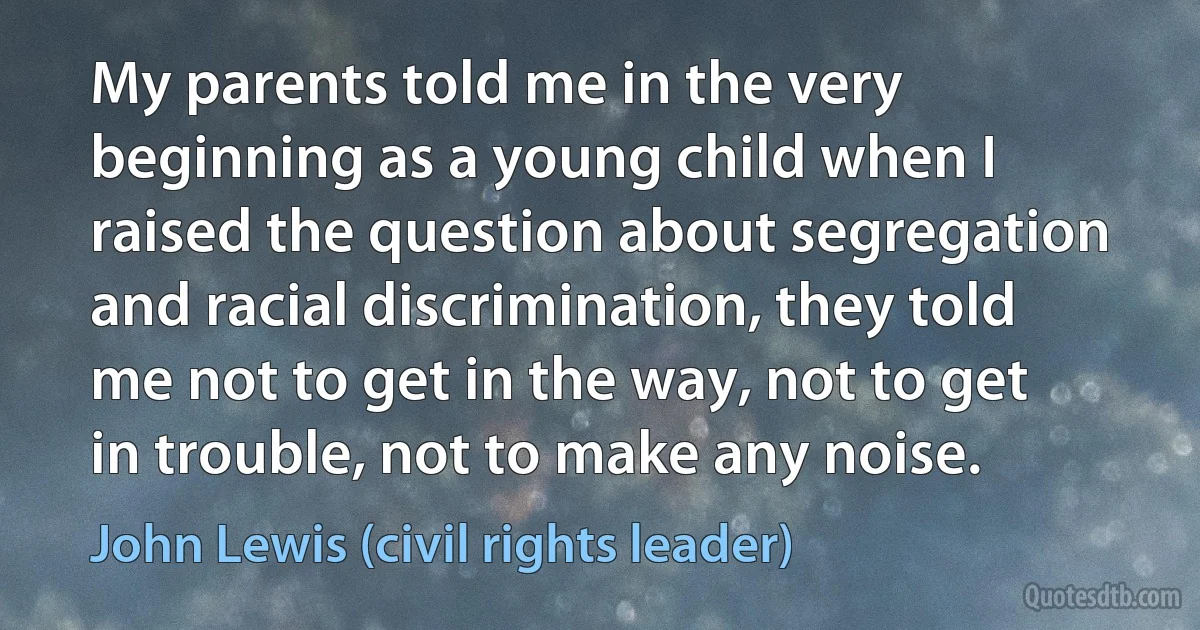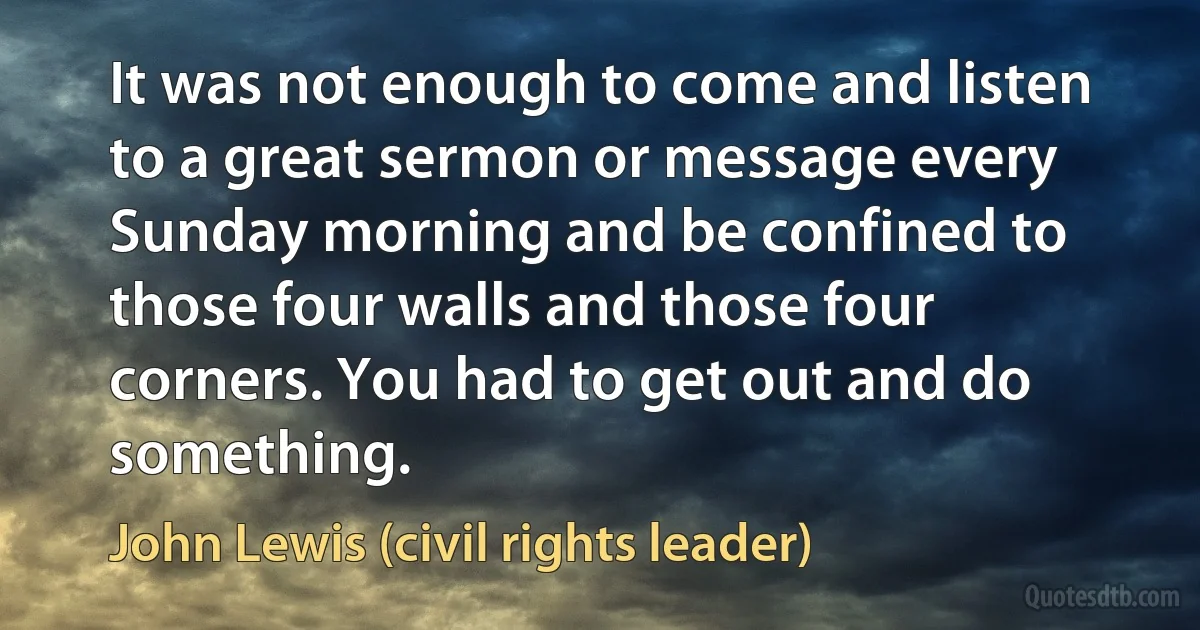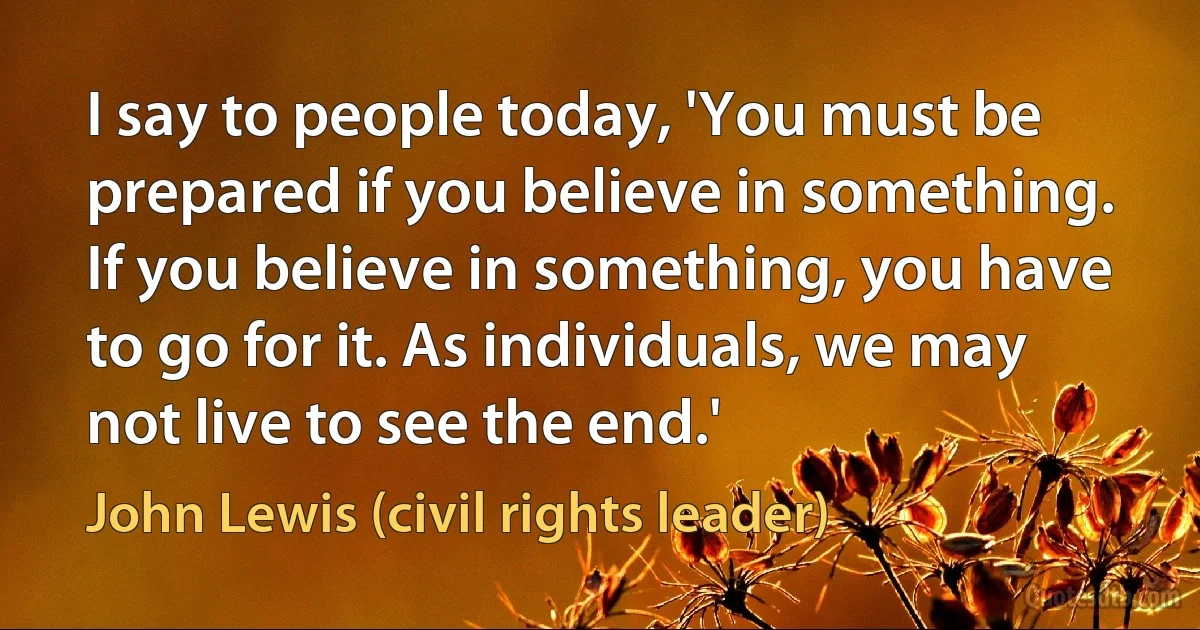John Lewis (civil rights leader) quotes
The civil rights movement was based on faith. Many of us who were participants in this movement saw our involvement as an extension of our faith. We saw ourselves doing the work of the Almighty. Segregation and racial discrimination were not in keeping with our faith, so we had to do something.

John Lewis (civil rights leader)
I thought I was going to die a few times. On the Freedom Ride in the year 1961, when I was beaten at the Greyhound bus station in Montgomery, I thought I was going to die. On March 7th, 1965, when I was hit in the head with a night stick by a State Trooper at the foot of the Edmund Pettus Bridge, I thought I was going to die. I thought I saw death, but nothing can make me question the philosophy of nonviolence.

John Lewis (civil rights leader)
55 years ago today, we were beaten, tear gassed, and trampled by horses. I thought I saw death. I thought I was going to die. I don't know how I made it back, but I know we cannot rest. We cannot become weary. We must keep pushing and pulling and find a way to get in the way.

John Lewis (civil rights leader)
Our nation is founded on the principle that we do not have kings. We have presidents. And the Constitution is our compass. When you see something that is not right, not just, not fair, you have a moral obligation to say something. To do something. Our children and their children will ask us, ‘What did you do? What did you say?'

John Lewis (civil rights leader)
I was so inspired by Dr. King that in 1956, with some of my brothers and sisters and first cousins - I was only 16 years old - we went down to the public library trying to check out some books, and we were told by the librarian that the library was for whites only and not for colors. It was a public library.

John Lewis (civil rights leader)



